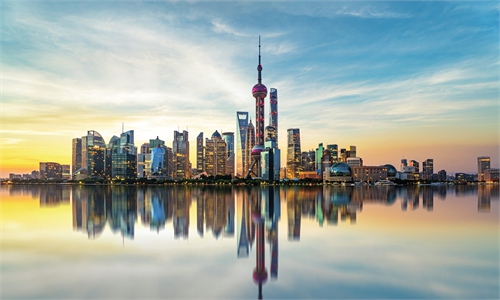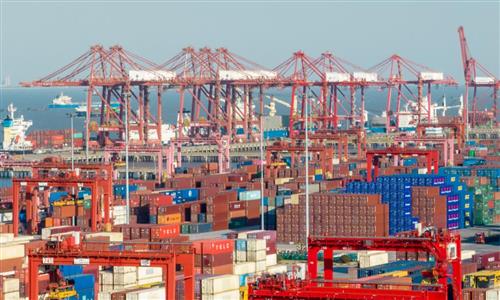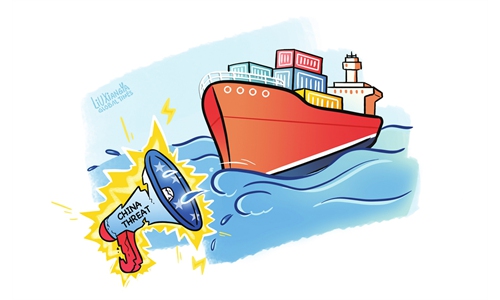
Illustration: Chen Xia/Global Times
It is interesting that not long after Chinese customs data showed China's exports to and imports from Brazil both rose by about one-third in January and February, some Western media outlets began to eagerly attack and smear trade between the two countries, trying to create a false impression that Brazil is a victim of China's dumping of cheap goods.The Financial Times (FT) published an article on Sunday with a headline "Brazil launches China anti-dumping probes after imports soar," claiming that Brazil, Latin America's largest economy, is reeling from a wave of cheap imported goods.
The FT report came at a time when the US-led West is delivering a great deal of propaganda claiming that "China dumps cheap goods on the global market." The dumping lies are a narrative that the US-led West creates to deceive the world, and its real purpose is to smear the Chinese economy, so it can use that propaganda as camouflage for its protectionist measures against Chinese goods.
Its propaganda machine desperately needs fabricated stories to attract a larger audience, and that's why some Western media outlets, including the FT, are closely watching Brazil's anti-dumping investigations against Chinese goods. However, the Western accusation violates common sense and is contrary to the real situation. Economic and trade ties between China and Brazil are mutually beneficial.
As reported, China has been Brazil's largest trading partner, export market and source of trade surplus for 15 consecutive years. Total bilateral trade jumped 33.3 percent year-on-year in January and February to $31.8 billion, driven by a 33.1 percent increase in Brazil's exports to China. It should be noted that both Brazil's exports to and imports from China rose in the period, which is a win-win result.
As China-Brazil trade continues to grow across various sectors, disputes may also increase. This is normal and understandable. Hopefully Brazil can use trade remedy measures in a prudent way, bringing trade cooperation to a new level.
The trade structure between China and Brazil is different from that between China and many developed countries. Some Western politicians and media outlets lack an understanding of trade between China and Brazil, but they tend to exaggerate the risks and challenges, and deliberately ignore its positive aspects.
On the one hand, soybeans, iron ore, crude oil and beef are among the main components of Brazil's exports to China. On the other hand, China's exports to Brazil are dominated by manufactured goods such as electronic products, daily necessities and other items. Such a trade structure is determined by the economic development of China and Brazil in recent decades.
Recently, Brazil launched policies to support the development of its manufacturing sector as the country seeks to re-industrialize. As its new industrialization accelerates, Brazil's import and export structure may undergo some changes to adapt to this. During the process of trade restructuring, trade friction between Brazil and its trading partners may increase. This has nothing to do with the so-called Chinese dumping of cheap goods.
Amid re-industrialization by Brazil, the supply chain's restructuring has accelerated, and this provides opportunities for Chinese companies to invest in the Latin American country. China and Brazil share large potential for cooperation in manufacturing.
Chinese officials have repeatedly stressed that China firmly supports Brazil in accelerating its economic and social development. In an interview with the Xinhua News Agency, Brazilian President Luiz Inacio Lula da Silva said last year that the value of Brazil's exports to China is greater than the sum of its exports to the US and the EU.
Lula was quoted as saying that China is a great engine for the Brazilian agro-industry, and he hoped that China could become a powerful engine for Brazil's re-industrialization.
Some Western observers may try to provoke anti-China sentiment in Brazil with their theory of "China dumps cheap goods on the global market," but those people are going to be deeply disappointed by the result. Facts have again proved that China isn't a risk, but only an opportunity for the world's economy.
The author is a reporter with the Global Times. bizopinion@globaltimes.com.cn



